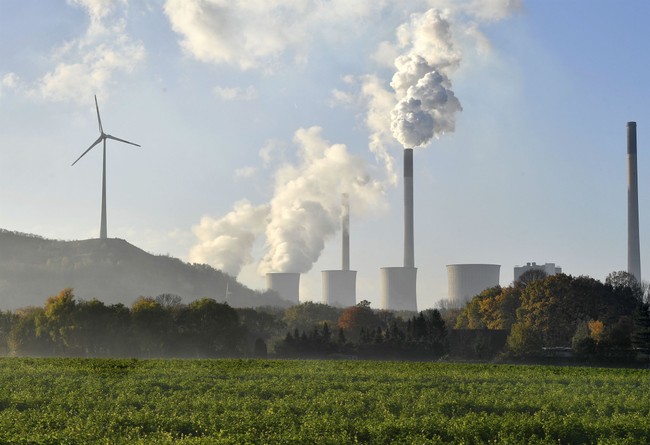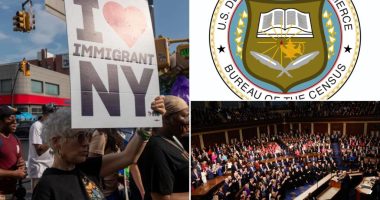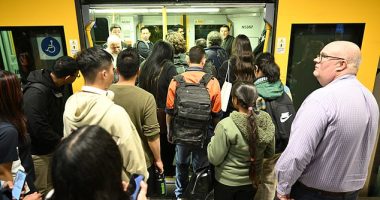
Which would you choose? Freezing to death, getting kicked out of your apartment, or not eating?
In Biden’s economy, many Americans face that choice. It’s impossible to say how many, but what we do know for sure is that too many people are feeling the pinch.
More Americans are having to choose between food and energy bills. https://t.co/NWa1Dpykxu
— CBS News (@CBSNews) September 4, 2024
This being a “news” story, it is impossible to tell just how common this is now compared to any other time in the past, so putting too much stock in it is hard to do. Is it a big trend, a small trend, or no trend at all? It’s impossible to say for sure, because you really can’t take any one news story seriously anymore.
Charlotte, N.C. — During the heat dome that blanketed much of the Southeast in June, Stacey Freeman used window units to cool her poorly insulated mobile home in Fayetteville, North Carolina. Over the winter, the 44-year-old mom relied on space heaters.
In both instances, her energy bills reached hundreds of dollars a month.
“Sometimes I have to choose whether I’m going to pay the light bill,” Freeman said, “or do I pay all the rent or buy food or not let my son do a sport?”
As a regional field organizer for PowerUp NC, Freeman’s job is to help people properly weatherize their homes, particularly in the Sandhills region, where she lives and works and where poverty and rising temperatures make residents vulnerable to the health impacts of climate change.
But Freeman’s income is too high to benefit from the very services she helps others attain from that grassroots sustainability, clean energy, and environmental justice initiative.
What we can say for sure is that this resonates enough that it has bubbled up into the public consciousness, and it resonates because many people are facing purchasing choices today that they didn’t face under Trump’s leadership. Gas and energy prices really are high, jobs numbers really were juked, people really are working two jobs to afford what one job used to pay for, and housing prices are ridiculously out of control.
That the story originates with a “field organizer” for a nonprofit is a tell that the particular anecdote is questionable. It is her job, after all, to hype people’s troubles in order to push for more dollars for–you guessed it–her own employer. She probably went into the job as a leftist, and now she is a paid, professional leftist. So, be skeptical of her particular story.
But however skeptical you are about the anecdata, the reality is that Americans are in a sour mood about the economy and have every right to be. Our real incomes have dropped dramatically over the past few years after a good run under Donald Trump.
This also plays right into Trump’s promise to make America energy abundant again. And given the current projections about the energy needs of the next technology wave, AI, Americans are underestimating the threats to their budgets that energy prices present.
Like a growing number of Americans, Freeman struggles with what is known as energy poverty, including the inability to afford utilities to heat or cool a home. Households that spend more than 6% of their income on energy bills are energy-poor, some researchers suggest.
“Some researchers suggest” is a tell that this is an advocacy story. Unnamed “researchers” and “experts” are fake people invented to move the narrative along.
But for my purposes, this doesn’t matter. Stories that push narratives are a dime a dozen; stories that reinforce people’s concerns based on their direct experience actually matter deeply.
While CBS and Stacey Freeman may believe that they are advocating for more government intervention to help people being crushed by the economy, the reality is that they are reinforcing Trump’s argument that there is something fundamentally wrong with our current economy.
In a great economy, most people should read a story like this and feel compassion for the “victims” of insufficient government help. That was the intent, but I am pretty sure that it didn’t hit the mark in this case.
Instead, many people will read this and think: “Yeah, that’s me, and I shouldn’t be poor and need government help–it’s time for a change.” And they read Stacey’s story and also think that they shouldn’t be doling out their too few dollars to pay for somebody else’s food and energy consumption.
“I have problems too, you know, and I can’t recall your effort to help me and my family.”
Kamala Harris’ argument that more government will drive down prices and increase prosperity has the same effect, at least in the long run. It reminds people how unbalanced our economy is and how much better it was under Trump.
Good work, CBS.









